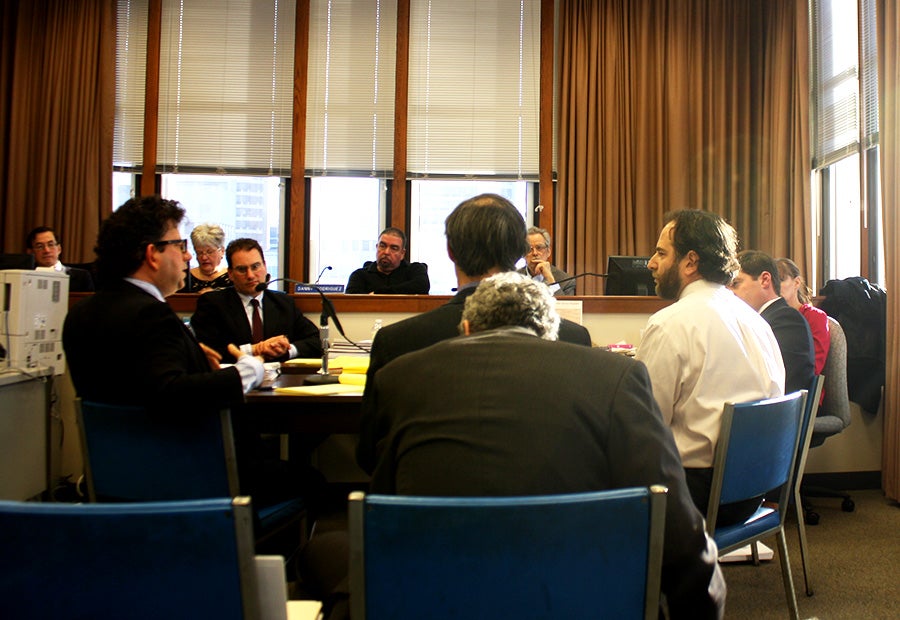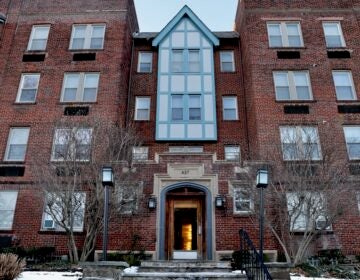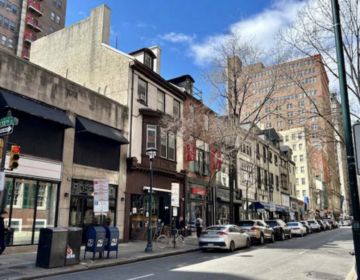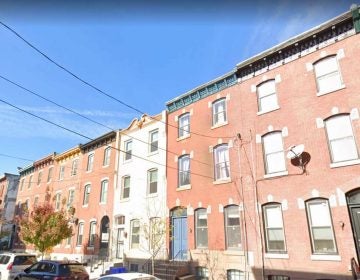Final witnesses called in 40th and Pine hardship case; closing arguments to come

Reports of the impending conclusion of the 40th & Pine hardship case have been greatly exaggerated. By this reporter.
Attorneys for the University of Pennsylvania, which owns the building, and for a group of nearby residents who have appealed the Historical Commission’s decision to grant Penn a hardship and allow the building to be demolished examined their final witnesses during a two-hour hearing at the Board of Licenses and Inspections Review Tuesday afternoon. At the end of the hearing, the Board decided to schedule another hearing for closing arguments—it will allow 45 minutes to each side—and then another hearing at which it will deliver its decision.
The case hinges on whether the Historical Commission erred in granting the hardship to Penn. At the time of the Commission decision, last May, Penn argued that there was no feasible way to adaptively reuse the 150-year-old building thought to have been designed—though not unanimously—by architect Samuel Sloan. The building was designated historic in the early 1970s, and used for several decades thereafter as a nursing home. Penn purchased the property for around $1.8 million ten years ago.
In cooperation with various developers, the University has since proposed an 11-story, extended-stay hotel and a 7-story student-housing complex on the site. Both those proposals would have involved rehabbing the existing building, but neighbors opposed both because of the out-of-scale height of each. The current proposal, from Jonathan Weiss of Equinox Management & Construction, calls for the building to be demolished and a five-story, 122-unit student-housing complex to be built in its place.
The Historical Commission voted 7-2 to grant the hardship. Paul Boni, attorney for the appellants, has argued that the return that Penn and Jonathan Weiss are seeking for the site is extravagant.
Weiss testified on Tuesday that the 7 percent capitalization rate estimated for the project is on the low end of what would bring any developer or set of investors to a project. A capitalization rate is the ratio of yearly operating income to initial cost—a 7 percent “cap rate” on a $2 million investment would $140,000.
In response to cross-examination from Paul Boni, Weiss said that there is no “hard and fast figure” for what would be the minimum return an investor would accept. In Manhattan, for example, which Weiss said is “perceived to have the lowest risk” for real estate investment, the rate might go as low as 5 percent. Weiss said the current project includes a number of risks, including changes in the market, rises in real estate taxes or utility costs, or a lack of interest from investors.
Weiss said the risks also included delays at the zoning board. The project was granted a handful of zoning variances last year, but Boni appealed the ZBA decision to the Court of Common Pleas on behalf of the same group of neighborhood residents, which includes the Woodland Terrace Homeowners Association and Guy Laren, of Constellar Corporation, a University City-based property management company. Penn’s attorney Matt McClure has characterized the appeal as being based on the competitive interests of that company rather than substantive errors at the Historical Commission.
Following Weiss’ testimony, Paul Boni finished his cross-examination of Paul Sehnert, director of real estate development for Penn, which had been cut off during an earlier hearing. The cross-examination quickly turned contentious.
Matt McClure and Andrew Ross, a city solicitor representing the Historical Commission, lodged repeated objections to what they said was an irrelevant line of questioning from Boni, who asked Sehnert about a series of consultants’ reports about the condition of the building, among other things. McClure characterized Boni’s cross-examination as an attempt at a “filibuster.” Board Chairman Danny Rodriguez became visibly frustrated at the pace and level of detail of Boni’s questions, and said that the protracted case represented a cost to the city. Board member Claire Gatzmer urged the board and opposing attorneys to let Boni finish his cross-examination.
Boni got Sehnert to agree that the underlying zoning of the property allowed for single-family homes, and that the property is in the catchment area for Penn Alexander school, but not that single-family residence is the most desirable use in the area. Sehnert said that student housing is the highest and best use of the land.
PlanPhilly, having come this far, will cover the closing arguments and decision of the board.
Contact the reporter at jbrey@planphilly.com and follow him on Twitter @jaredbrey
WHYY is your source for fact-based, in-depth journalism and information. As a nonprofit organization, we rely on financial support from readers like you. Please give today.






